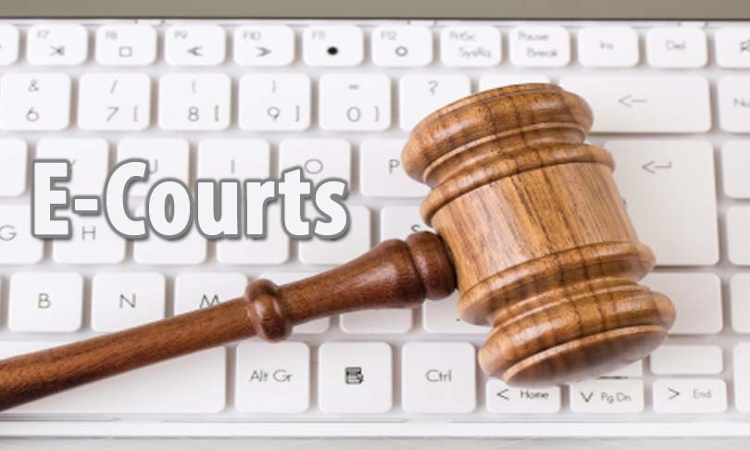Digital Courts: Future Of The Indian Legal System
Akshat Khetan
17 Oct 2023 11:14 AM IST

“The issue is not whether a judge is tech-savvy or not. To be a judge in this country, one must be tech-friendly or else, ensure adequate training to familiarize oneself with technology. This also holds true for Supreme Court judges who have undergone training at specialized centers.”
This was part of Chief Justice of India D Y Chandrachud’s recent observations during the hearing of a petition on the present status of virtual and hybrid hearings at high courts across the country. Technology is no longer an option but a necessary tool, the CJI went on to say before the Bench passed several directives to high courts to resume virtual hearings.
The journey towards digitalization of India’s judicial system started in 2005 with the setting up of the Supreme Court of India’s e-Committee. Nearly 18 years later, Phase-II of the e-Courts Project is nearing completion. This Phase has focused on citizen-centric e-services while computerizing 18,735 courts and connecting them with Wide Area Networks. The e-Committee has also approved a Digital Preservation Standard Operating Procedure that will scan, store, retrieve, digitize court records while preserving legacy data of the judiciary. This has now been passed on to all High Courts in the country for implementation.
Digitization of the judiciary has already made an impact on the lives of litigants and members of the Bar. The entire process has become cheaper, less time consuming and most importantly – far more transparent than it ever was. While a litigant can access court documents, including orders and judgements, online, lawyers can opt for virtual hearings and cut down on the time required to move from one court to another. Even undertrials need not be physically present in court but appear through video-conference from custody.
It needs to be appreciated here that India has one of the cheapest internet rates in the world. A joint study conducted by the Internet And Mobile Association of India (IAMAI) and data analytics firm Kantar has revealed that 759 million Indians – more than half the country’s population are active internet users today. The report further states that this figure is likely to go up to 900 million by 2025.
The time is not far when a litigant would be able to move a court of law, attend hearings and get his/her matter disposed of without visiting the court physically even once. One can just imagine the kind of impact this would have on litigants who may be living elsewhere in the country or even abroad. It will also open up new vistas for members of the Bar who would get far more options to reach out to overseas clients, particularly from the corporate sector.
With fewer adjournments, trials would not be inordinately delayed, allowing courts to clear huge backlogs. It would be pertinent to mention here that several courts across the country were operational during the pandemic years. Virtual and hybrid hearings exposed members of the Bar as well as the Bench as litigants to minimum risk of infection.
Something equally important in today’s world is the sustainability factor. As technology reaches out to all courts, the use of paper will come down substantially. The use of huge quantities of paper in the judiciary is something that has certainly impacted the environment. Paperless courts is certainly a move in the right direction.
The world is changing and technology is catching up fast in all sectors. The legal system can’t stay away from this. The decision of the Supreme Court of India to live stream hearings was a landmark one. It has granted access to thousands of people to witness for themselves how the country’s topmost judiciary functions. It is also great training for young lawyers.
As judges turn tech-savvy, lawyers will also have to upgrade their skills accordingly. Law institutes across the country will need to include not just technology, but technology related to law, as a part of their curriculum. Practicing lawyers will have to unlearn old practices and get themselves trained for this major shift in the right direction.
Author: Akshat Khetan is a corporate and legal advisor. He is an expert in M&A, corporate restructuring, and turnaround specialist. (Twitter: @akshat_khetan). Views are personal.


